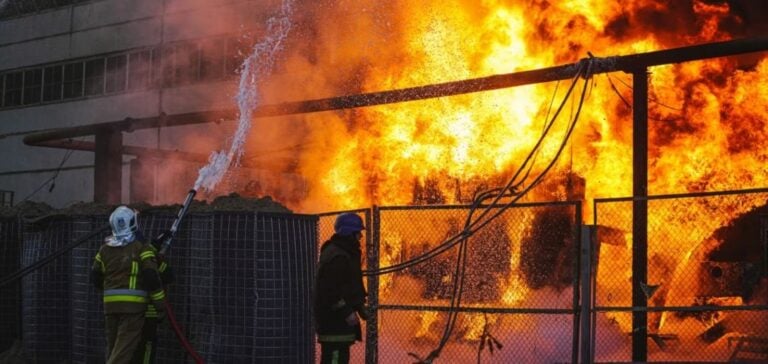Ukraine’s energy network has been hit by a series of massive attacks, resulting in power outages across several regions. The Russian military stated that it used high-precision weapons and drones to target critical infrastructures, including strategic gas and energy facilities.
Volodymyr Zelensky, President of Ukraine, described this offensive as a deliberate attempt to plunge the country into an energy crisis during the winter. According to the Ukrainian military, Russia deployed 43 ballistic and cruise missiles along with 74 combat drones. Of these, 30 missiles and 47 drones were reportedly intercepted by Ukraine’s air defenses.
Impact on Critical Infrastructure
The attacks primarily targeted energy sites in the regions of Kharkiv, Lviv, and Ivano-Frankivsk. In the Lviv region, two critical facilities were hit, causing significant material damage but no casualties, according to Governor Maksym Kozytsky. An unexploded missile was also found in a field.
The national energy operator, Ukrenergo, announced emergency power outages in seven regions to stabilize the grid after these strikes.
Geopolitical Context and Ukrainian Response
The attack coincided with Volodymyr Zelensky’s visit to Poland to discuss military and diplomatic support with European leaders. During the visit, he called for enhanced Ukrainian air defense capabilities and requested permission to locally produce modern anti-aircraft systems.
Poland, Ukraine’s immediate neighbor and a key supporter within the European Union, responded by increasing airspace vigilance. Polish fighter jets were deployed to monitor the border.
Escalation of Military Tensions
The Russian strikes followed a Ukrainian attack on industrial and energy facilities located in Russian territory. According to Moscow, American ATACMS missiles and British Storm Shadow missiles were involved in this operation, prompting a threatening response from Russia, which vowed to intensify its retaliation.
Meanwhile, the Russian military continues to advance in eastern Ukraine, claiming control of several strategic localities in the Donetsk region.





















